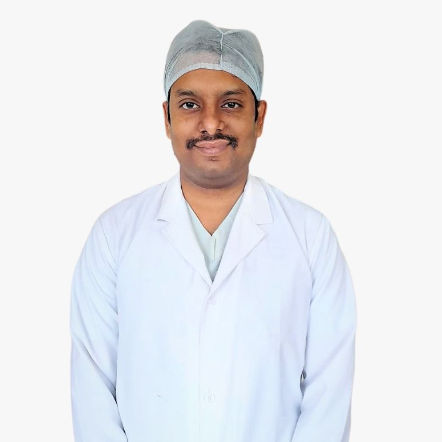Understanding Repetitive Hiccups: Causes and Management
Struggling with persistent hiccups? Understand the reasons behind repetitive hiccups and learn how to find relief. Explore causes and remedies.

Written by Dr.Sonia Bhatt
Last updated on 3rd Jul, 2025

Hiccups – those involuntary, repetitive contractions of the diaphragm – are a common and often annoying part of life. However, when hiccups become persistent or repetitive, lasting for more than a few hours or even days, they can be a cause for concern. Persistent or chronic hiccups can interfere with daily life and may signal underlying health conditions. This article will explore the causes of repetitive hiccups, their triggers, risk factors, and what to do when you experience them. We will also guide you on when to seek medical help to address this perplexing symptom. Whether you're experiencing persistent hiccups or are just curious about this peculiar bodily function, we aim to offer practical advice and empower you with knowledge.
What Are Hiccups?
Hiccups occur when the diaphragm, a dome-shaped muscle that separates the chest from the abdomen, involuntarily contracts. This sudden contraction causes the vocal cords to close briefly, producing the characteristic "hic" sound. While most hiccups last only a few seconds or minutes, some individuals experience them for an extended period.
When hiccups last for more than 48 hours, they are classified as persistent, and if they last more than a month, they are considered chronic. Persistent or repetitive hiccups can be particularly distressing, interfering with speaking, eating, and sleeping, and potentially signalling a deeper health issue.
Consult Top Urologists
Causes of Repetitive Hiccups
While occasional hiccups are typically harmless and may arise from simple triggers, repetitive or chronic hiccups often stem from more complex causes. These can range from gastrointestinal and neurological issues to metabolic conditions. Let’s take a closer look at the various medical reasons that may lead to persistent hiccups:
1. Gastrointestinal Causes
The gastrointestinal (GI) system is one of the most common culprits behind persistent hiccups. Any disruption in the normal functioning of the digestive tract can lead to irritation of the diaphragm or other muscles involved in the hiccup reflex. Common gastrointestinal causes of repetitive hiccups include:
Gastroesophageal Reflux Disease (GERD): GERD, or acid reflux, occurs when stomach acid travels back into the oesophagus, causing irritation. This can trigger the diaphragm to contract involuntarily, leading to hiccups. GERD-related hiccups tend to be more persistent, especially after eating or lying down.
Peptic Ulcers: Open sores in the stomach lining can cause discomfort and disrupt normal digestion, leading to hiccups.
Swallowing Air (Aerophagia): When you swallow air, whether from eating too quickly, drinking carbonated beverages, or chewing gum, it can trigger hiccups as the air puts pressure on the diaphragm.
Stomach Distension: Conditions such as bloating or constipation, where the stomach is overly full or distended, can irritate the diaphragm and provoke hiccups.
2. Neurological Causes
The brain and nervous system play a key role in controlling the diaphragm and other muscles involved in the hiccup reflex. In some cases, neurological issues can lead to repetitive or chronic hiccups. Conditions that affect the brain, spinal cord, or nerve pathways may contribute to persistent hiccups:
Brain Injuries or Strokes: Damage to the areas of the brain responsible for regulating the hiccup reflex can lead to persistent hiccups. Strokes, brain tumours, or head trauma affecting these regions can result in long-lasting hiccups.
Neurological Disorders: Diseases like Parkinson’s disease, multiple sclerosis (MS), and encephalitis (inflammation of the brain) can disrupt the brain’s ability to control the diaphragm, leading to frequent hiccup episodes.
Brain Stem Lesions: The brainstem is responsible for regulating basic bodily functions like breathing and heart rate. Any injury or lesion to the brainstem can interfere with the body’s ability to control the diaphragm and trigger persistent hiccups.
3. Metabolic and Systemic Conditions
In addition to gastrointestinal and neurological factors, certain metabolic and systemic conditions can lead to chronic hiccups:
Kidney Failure: When the kidneys are not functioning properly, waste products like urea can build up in the bloodstream. This condition, known as uremia, can irritate the diaphragm and lead to prolonged hiccups.
Electrolyte Imbalances: Low levels of electrolytes like sodium, calcium, and potassium in the blood can disrupt nerve function and trigger hiccups.
Diabetes: Uncontrolled blood sugar levels in individuals with diabetes can cause metabolic disruptions that affect nerve function and lead to persistent hiccups.
Sepsis: Severe infections, known as sepsis, can lead to widespread inflammation in the body, affecting the brain and nerves and leading to the development of hiccups.
4. Medications and Drug Use
Certain medications and substances can also cause repetitive hiccups as a side effect:
Anaesthesia: Following surgery, some people experience hiccups due to the residual effects of anaesthesia on the central nervous system.
Sedatives and Tranquilizers: Drugs used to treat anxiety, depression, or insomnia can affect the brain’s control over the diaphragm, leading to hiccups.
Chemotherapy: Some chemotherapy drugs can cause nerve irritation, leading to persistent hiccups in cancer patients.
Steroids: Corticosteroids can affect the body’s electrolyte balance and influence nerve function, sometimes causing hiccups.
5. Psychological Triggers
Although less common, psychological factors like stress and anxiety can sometimes lead to persistent hiccups. Emotional distress can disrupt normal nervous system function, and the resulting tension in the body may cause involuntary muscle contractions, including the diaphragm.
6. Other Possible Causes
In some cases, repetitive hiccups may be related to conditions that don’t fall neatly into the above categories. For instance, they could be a side effect of surgery or a reaction to drinking very hot or cold liquids. In rare cases, hiccups could be a result of an underlying condition that remains undiagnosed for some time.
Management and Treatment of Repetitive Hiccups
Managing chronic hiccups involves addressing the underlying cause and using various strategies to reduce the frequency and severity of episodes. Here are some approaches to consider:
Lifestyle Changes
Eat Slowly: Take your time when eating to avoid swallowing air and irritating the diaphragm.
Avoid Trigger Foods and Drinks: Identify and avoid foods and beverages that trigger hiccups, such as spicy foods, carbonated drinks, and alcohol.
Practice Relaxation Techniques: Techniques such as deep breathing, meditation, and yoga can help manage emotional stress and reduce the likelihood of hiccups.
Home Remedies
Breathing Techniques: Holding your breath, breathing into a paper bag, or practising controlled breathing can help interrupt the hiccup cycle.
Swallowing Sugar: Swallowing a spoonful of granulated sugar can stimulate the vagus nerve and stop hiccups.
Drinking Cold Water: Sipping or gargling cold water can help calm the diaphragm and reduce hiccups.
Medical Interventions
If lifestyle changes and home remedies are ineffective, medical treatment may be necessary. Here are some options:
Medications: Medications such as chlorpromazine, metoclopramide, and baclofen can be prescribed to manage chronic hiccups.
Nerve Blocks: In severe cases, a nerve block may be performed to interrupt the reflex arc, causing hiccups.
Surgery: In rare cases, surgical intervention may be necessary to treat underlying conditions or nerve damage causing hiccups.
When to Seek Medical Attention
If hiccups persist for more than 48 hours or are accompanied by other symptoms such as severe pain, difficulty breathing, or weight loss, it is important to seek medical attention. Persistent hiccups can be a sign of an underlying medical condition that requires treatment.
Conclusion
Repetitive or persistent hiccups may be more than just an inconvenience—they can be a sign of an underlying health condition. Understanding the potential causes, from gastrointestinal and neurological issues to metabolic imbalances, can help you identify when it’s time to seek medical advice. Whether through lifestyle changes, home remedies, or medical intervention, there are effective ways to manage and treat persistent hiccups. If you or a loved one are experiencing prolonged hiccups, don’t hesitate to reach out to a healthcare professional for further evaluation and support.
Consult Top Urologists
Consult Top Urologists

Dr. Sateesh Marriwada
Urologist
17 Years • MBBS, MS (General Surgery), Mch ( Genito Urinary Surgery)
Visakhapatnam
Apollo 24|7 Clinic - Andhra Pradesh, Visakhapatnam

Dr Tharaka Mourya Nutulapati
Urologist
7 Years • MBBS, MS (General Surgery), Mch ( Urology)
Visakhapatnam
Apollo 24|7 Clinic - Andhra Pradesh, Visakhapatnam

Dr. Prabir Basu
Urologist
19 Years • MBBS, MS General Surgery, DNB Genito-Urinary Surgery
Jodhpur Park
Dr. Prabir Basu urology clinic, Jodhpur Park
(125+ Patients)

Dr. Sandeep Maheswara Reddy Kallam
Urologist
6 Years • MBBS, MS (General Surgery), M Ch (Genito-Urinary Surgery), Post Doctoral Fellowship in Uro-Surgical Oncology
Visakhapatnam
Dr. SANDEEP MAHESWARA REDDY K _- best Urologist in visakhapatnam, Visakhapatnam
(225+ Patients)
Dr. Mohammed Rehan Khan
Urologist
8 Years • MBBS, MS (General Surgery), Mch (Urology)
Barasat
Diab-Eat-Ease, Barasat
Consult Top Urologists

Dr. Sateesh Marriwada
Urologist
17 Years • MBBS, MS (General Surgery), Mch ( Genito Urinary Surgery)
Visakhapatnam
Apollo 24|7 Clinic - Andhra Pradesh, Visakhapatnam

Dr Tharaka Mourya Nutulapati
Urologist
7 Years • MBBS, MS (General Surgery), Mch ( Urology)
Visakhapatnam
Apollo 24|7 Clinic - Andhra Pradesh, Visakhapatnam

Dr. Prabir Basu
Urologist
19 Years • MBBS, MS General Surgery, DNB Genito-Urinary Surgery
Jodhpur Park
Dr. Prabir Basu urology clinic, Jodhpur Park
(125+ Patients)

Dr. Sandeep Maheswara Reddy Kallam
Urologist
6 Years • MBBS, MS (General Surgery), M Ch (Genito-Urinary Surgery), Post Doctoral Fellowship in Uro-Surgical Oncology
Visakhapatnam
Dr. SANDEEP MAHESWARA REDDY K _- best Urologist in visakhapatnam, Visakhapatnam
(225+ Patients)
Dr. Mohammed Rehan Khan
Urologist
8 Years • MBBS, MS (General Surgery), Mch (Urology)
Barasat
Diab-Eat-Ease, Barasat